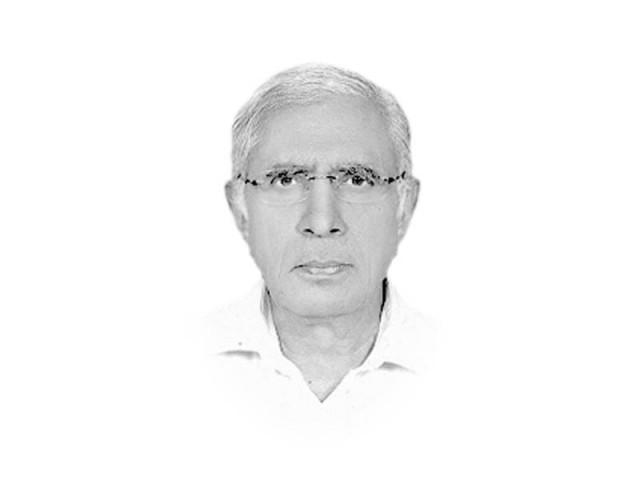Feel-good stories during the budget season
There is no country on the face of this earth which after having been treated by Dr IMF had survived economically

The writer served as Executive Editor of The Express Tribune from 2009 to 2014
The age-old trick in the hands of the ruling elite is to feed the nation at large, during the annual budget-making season, with feel-good stories. One of these is that multilateral donors like the World Bank, the Asian Development Bank and the lender of last resort, the International Monetary Fund (IMF) readily provide at request. This keeps the debtor coming back for more and more dole to be spent on unnecessary goods from important member countries, which no one in the world wants to buy, and at times, to get the recipient to promote the global political interests of these very powerful member countries like the US, the UK, Germany, France, etc.
Another feel-good story of the season is about remittances. As usual these have already increased significantly. And the biggest chunk of increase as usual is from the UAE at 34.1 per cent to $3.3 billion on a year-on-year basis. Inflows from Saudi Arabia were the largest amounting to over $4.5 billion, but up only 19.9 per cent. Remittances from the US and the UK remained at $2.1 billion and $1.8 billion, respectively. The year-on-year increase in remittances from the US and the UK has been very low at 3.8 per cent and 2.6 per cent, respectively. Remittances from the Gulf Cooperation Council countries, excluding Saudi Arabia and the UAE, clocked up at $1.7 billion, which is 14.6 per cent higher than the remittances received from these countries in the same period of the preceding fiscal year. Remittances received from Norway, Switzerland, Australia, Canada, Japan and ‘other countries’ in April amounted to $99.43 million as opposed to $84.53 million received in the same month of the preceding year.
But what is noteworthy here is the significantly long jumps that remittances from the UAE have been taking year after year lately despite the fact that job opportunities in the region have been stagnating since the banking crash of 2009. These remittances are over and above the investments Pakistanis have been making in real estate in Dubai and Abu Dhabi since at least 2009. Ms Ayan’s case is perhaps, only the tip of the iceberg. Corruption money is smuggled to these free-for-all countries by a number of routes — sea, air and over land — and part of it comes back whitened in the shape of remittances for use in legitimate business in Pakistan and the bulk kept out invested in real estate. Perhaps, Interior Minister Chaudhry Nisar Ali Khan could do something about this while he is trying to weed out the corrupt from the FIA.
Another feel-good story that is circulated by officials during the budget season is the government’s determination to start widening the tax net by the next fiscal year (which never happens) and its plans to phase out another batch of tax-exempting Statutory Regulatory Orders from the next fiscal year. Such decisions are, even if taken at the time of the budget announcement, invariably withdrawn on political pressures.
However, the most interesting feel-good story is about what the IMF thinks about the current state of the Pakistani economy and the good tidings that the Fund has as a result of such remarkable achievement (made possible by the steep decline in world oil prices) of the official economic managers, released the tranche due around this time of the year.
There is no country on the face of this earth which after having been treated by Dr IMF had survived economically. Most of the time the doctor’s diagnosis itself goes off the mark by miles. But even if it had read the disease correctly, its one cure-fits-all diseases has only been worsening the ailment. So, macroeconomic stability is a highly desirous goal but by the time a country succeeds in achieving this goal, it invariably ends up with resource constraints becoming even more chronic and the unemployment rate shooting through the ceiling.
Published in The Express Tribune, May 13th, 2015.
Like Opinion & Editorial on Facebook, follow @ETOpEd on Twitter to receive all updates on all our daily pieces.



















COMMENTS
Comments are moderated and generally will be posted if they are on-topic and not abusive.
For more information, please see our Comments FAQ